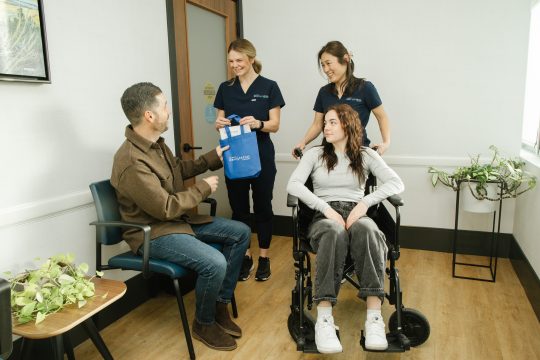
What is Wisdom Tooth Extraction?
The extraction of wisdom teeth, also known as third molars, is the most common procedure in an Oral & Maxillofacial Surgery office. Patients are typically referred to Kelowna Oral & Facial Surgery from their dentist for wisdom teeth removal. This dental surgery procedure is usually performed under general anesthesia to maximize patient comfort and safety. Information regarding anesthetic services (sedation and general anesthesia) and our anesthesia team can be found in the Anesthesia Services section.
How Much Does Wisdom Tooth Extraction Cost?
The cost of the removal of wisdom teeth varies depending on the complexity of the procedure. The procedure to remove impacted wisdom teeth is more involved than the removal of wisdom teeth that are close to erupting, for example. The staff at Kelowna Oral & Facial Surgery will review all financial aspects of treatment after a thorough consultation with one of our surgeons. You will always have the opportunity to review your treatment plan, including the cost, prior to surgery. This remains true for patients scheduled for consultation and treatment on the same day. Information regarding our financial policy can be found in the Patient Information section.
Why do I need to have my wisdom teeth removed if they’re not bothering me?
If wisdom teeth erupt into the oral cavity, and become fully functional teeth, they do not need to be removed. However, most wisdom teeth become impacted when they cannot erupt into the mouth due to lack of space and tooth position. Impacted wisdom teeth can lead to decay of adjacent teeth, gum disease, crowding, and can even form cysts which will lead to bone loss and possible nerve damage.
Why did my dentist refer me to KOFS to have my wisdom teeth removed?
Kelowna Oral & Facial Surgery works with your dentist to determine the best time to have your wisdom teeth removed. Most commonly, wisdom teeth are extracted during the teenage years or early 20s. At this age, the risks of surgery are at their lowest, and the recovery potential is at its highest. This procedure is done in our office, usually with sedation or general anesthesia, and the recovery time is typically minimal (a few days off work or school).